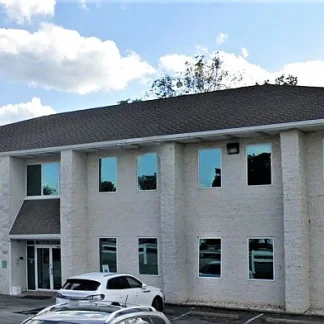Accessible Recovery Services
Accessible Recovery Services - East Otterman Street provide the very best compre...
Allied Addiction Recovery is a drug and alcohol addiction treatment facility based in Greensburg, PA dedicated to providing the highest level of care to people struggling with addictions in the greater Pittsburgh area.
At Allied Addiction Recovery, individuals find a compassionate and comprehensive approach to gambling and substance use addiction treatment. Through their range of programs, personalized care plans, and a dedicated team of professionals, Allied Addiction Recovery is committed to empowering individuals on the path to lasting sobriety and a brighter future.
At Allied Addiction Recovery, Medication Assisted Treatment (MAT) is an integral part of the comprehensive approach to addiction recovery. MAT combines FDA approved medications with counseling and behavioral therapies to address addiction. The use of medications, such as buprenorphine or naltrexone, can help individuals manage withdrawal symptoms, reduce cravings, and stabilize their recovery.
Allied Addiction Recovery offers outpatient programs that provide flexible treatment options for individuals seeking recovery while maintaining their daily routines. These programs may include individual counseling, group therapy, family therapy, and educational workshops.
For individuals requiring a more structured and intensive level of care, Allied Addiction Recovery provides an Intensive Outpatient Program (IOP). The IOP offers a comprehensive approach to treatment, combining individual and group therapy, psychoeducation, and holistic modalities.
Allied Addiction Recovery’s Partial Hospitalization Program (PHP) is designed for those who require a higher level of care than traditional outpatient programs. In the PHP, individuals receive intensive treatment during the day and return home or to a sober living environment. The program includes therapy sessions, medication management, medical monitoring, and support in a structured and nurturing setting.
Contact us for more information: (412) 246-8965

Connect with Allied Addiction Recovery by calling their admissions team directly.
(412) 246-8965 Website Get DirectionsThe Substance Abuse and Mental Health Services Administration (SAMHSA) is a branch of the U.S. Department of Health and Human Services. Established in 1992 by congress, SAMHSA's mission is to reduce the impact of substance abuse and mental illness on American's communities.
SAMHSA Listed: Yes
Cognitive Behavioral Therapy (CBT) is a therapy modality that focuses on the relationship between one's thoughts, feelings, and behaviors. It is used to establish and allow for healthy responses to thoughts and feelings (instead of unhealthy responses, like using drugs or alcohol). CBT has been proven effective for recovering addicts of all kinds, and is used to strengthen a patient's own self-awareness and ability to self-regulate. CBT allows individuals to monitor their own emotional state, become more adept at communicating with others, and manage stress without needing to engage in substance abuse.
Group therapy is any therapeutic work that happens in a group (not one-on-one). In traditional group therapy clients are guided, supported and directed by the therapists as they develop personal strategies and plans the course and expectations of treatment goals. The group therapy is also designed to help patients build commitment throughout behavior and attitude modification.
In individual therapy, a patient meets one-on-one with a trained psychologist or counselor. Therapy is a pivotal part of effective substance abuse treatment, as it often covers root causes of addiction, including challenges faced by the patient in their social, family, and work/school life.
Group therapy is any therapeutic work that happens in a group (not one-on-one). In traditional group therapy clients are guided, supported and directed by the therapists as they develop personal strategies and plans the course and expectations of treatment goals. The group therapy is also designed to help patients build commitment throughout behavior and attitude modification.
In individual therapy, a patient meets one-on-one with a trained psychologist or counselor. Therapy is a pivotal part of effective substance abuse treatment, as it often covers root causes of addiction, including challenges faced by the patient in their social, family, and work/school life.
In individual therapy, a patient meets one-on-one with a trained psychologist or counselor. Therapy is a pivotal part of effective substance abuse treatment, as it often covers root causes of addiction, including challenges faced by the patient in their social, family, and work/school life.
Accessible Recovery Services - East Otterman Street provide the very best compre...
Wesley Spectrum Services – Mental Health Services is a private rehab located in ...
Outside In is located in Greensburg, Pennsylvania. Outside In provides individua...
Excela Behavioral Health is a private rehab located in Greensburg, Pennsylvania....